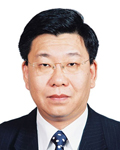|
Though the Asia-Pacific region is fast replacing Europe as the next focus of world economic development, the region also faces severe threats from traditional and non-traditional security problems including territorial disputes and terrorist attacks. At a high-level discussion during the commemoration of the International Day of Peace 2014 in Xi'an, in central China's Shaanxi Province, renowned scholars from Asian think-tanks shared their views in pursuit of a more peaceful Asia.

Han Fangming, Chairman of the Charhar Institute of China: Cases like 9/11, the Ukrainian crisis and the conflicts in Syria show that a new era is upon us. Asian security calls for a common overlapping security apparatus to keep out the wind and rain, and ensure smooth sailing for the people of Asia. Looking around the Asia-Pacific region, we see that no country will escape the scourge of turbulence if it is located in a hot spot: the Korean Peninsula, East and South China seas, Afghanistan and the Middle East, to name a few. Common, comprehensive, cooperative and sustainable security in Asia is an immense task facing all Asian governments and people, and a powerful necessity throughout the world.
To build a safer Asia, I would make the following suggestions: first, establish a common security system in Asia. Regional security is shared by all, and an integral part of global security. Second, establish a comprehensive early warning mechanism. Various parties in the region must strengthen their means of non-conventional security cooperation while maintaining more conventional means; they must consult each other while building routes for assistance and pre-warning of disasters, emergency rescue and relief, and post-disaster reconstruction to minimize the impact of natural disasters and enhance the protection of people's life and properties. Third, we must establish a regular cooperative security dialogue. Ensuring security for any country in Asia – not only national security, but more importantly the security of all countries in the surrounding region – needs to be emphasized. Finally, a sustainable mutual-assistance security system must be created. Development is the foundation of security.

Akkan Suver, President of Marmara Group Foundation of Turkey: Today, the once-vast world is now a global village as a result of globalization. Interdependence wields great importance, and states are made inseparable from each other. In this environment, any kind of political, economical, religious or ethnic conflict has a great potential to spread to other parts of the globe - Iraq, Syria and ISIL (the Islamic State of Iraq and the Levant) are just a few examples. This is the greatest risk in today's world as compared to in the past. Therefore, the international community must come to a common understanding in order to cooperate against the potential threats that undermine global peace. This common understanding can be achieved only through a universally recognized principle. In my opinion, this principle is "peace at home, peace in the world," which means resolving the clash of ideas with reconciliatory approaches domestically while achieving and preserving peace around the world through support from other non-warring nations. That sort of approach may seem utopian at first glance when considering the reality of world issues; however, the least we can say is that it is not impossible.
Faith and trust give life to even the most seemingly impossible things. Hence, Turkey became an island of peace and stability in the region by her faith and trust in the principle of "peace at home, peace in the world." In short, Turkey is a prime example in this regard. It is not even a remote possibility that universal peace can be achieved until nations of the world understand that they are dependent each other and that they must stress cooperation rather than conflict.

Deleg Zagdjav, President of the Peace and Friendship Organization of Mongolia: We are assembling during a time where the United States and Western countries, under UN protection, continually break their promises to the free world by breaking their agreement to not interfere in the internal affairs of other countries. By doing this they are fuel terrorism with military force and weaponry while stripping these countries of natural resources, despite the fact that civilian populations continue to suffer. We should be pushing for a UN General Assembly conference to further debate this matter.
For this, we must take the following steps. First and foremost, expand the Shanghai Cooperation Organization's economical collaboration and create a currency we can use amongst each other, further developing it into an international monetary network.
Secondly, Russia, China, India, and other member countries should form a military allegiance whereby forces can share strategic theories and training methods. Our combined forces can be mobilized effectively where military assistance is needed with the formation of a functional strategy-based headquarters.
(Reporting from Xi'an, Shaanxi Province)
|
